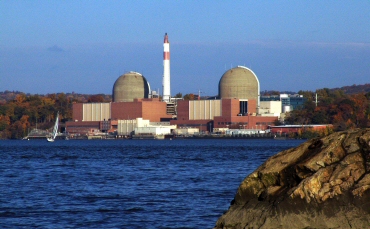Nuclear safety in the U.S. a slow affair


The Nuclear Regulatory Commission (NRC) is taking a years long methodical approach to advanced nuclear safety in the United States while other nations, including France and Japan, are acting more expeditiously.
Japan's ongoing Fukushima crisis has placed nuclear power under scrutiny throughout the world, and public interest groups in the US have expressed safety concerns about its aging reactors. Watchdogs have criticized the NRC for softening regulations or even ignoring violations.
The NRC has taken action to advance domestic nuclear safety by establishing a Fukushima focused task force. It outlined its goals in two memos (see here and here).
The task force will create discrete goals to address the lessons NRC learned from the Fukushima disaster before it requires U.S. plant operators to take any specific actions, said spokesperson Scoot Burnell. Those advancements will be completed within five years, and plant operators will have additional time to conform to the new requirements.
France is taking a more aggressive position in comparison to the U.S. Earlier this month it gave 58 nuclear power plants 10 months to make mandated safety improvements. Each plant has passed stress tests, and has been deemed safe.
The NRC also maintains that there is no immediate threat to U.S. public safety in the interim, and plants are capable of dealing with severe events. Burnell said. Regulators came to that conclusion after three months of "intense review." Some plants resolved "minor" issues where necessary.
"All U.S. plants are capable of dealing with severe events, no matter how long they've been operating. All the plants, regardless of whether they've received renewed licenses, must comply with the new requirements. Plants continue to apply for license renewal and the NRC continues to review those applications," Burnell explained.
There is some dissent among nuclear experts despite the NRC's assurances. The Associated Press recently uncovered that safety regulations have been deemed “unnecessarily conservative” by the NRC, and engineers have manipulated tests to allow for faulty equipment to remain in compliance “without peril.” Meaning, there’s problems, but no immediate threats that would cause critical systems to fail.
The problems arise from America's aging nuclear infrastructure, where plants are operating decades past their intended lifespans. There are a total of 104 nuclear plants in the U.S today, according to NRC data. 61 were recently given another 20 years to operate, and most of the remaining plants should be relicensed with NRC reviews and upgrades, according to June interview with a nuclear scientist.
Leaks are prolific at U.S. nuclear sites, but NRC officials have dismissed the impact as being too insignificant to affect public health. The AP’s investigation found that radioactive tritium has leaked into groundwater at three-quarters of U.S. commercial nuclear power sites.
"There has been no adverse impact on public health or safety from the release of tritium at commercial nuclear power plants. The industry takes tritium releases seriously and voluntarily implemented an underground piping integrity initiative in 2009 to better manage issues related to the integrity of underground piping," said Nuclear Energy Institute (NEI) spokesperson TomKauffman.
The Atomic Energy Act of 1954 permits nuclear plants to renew their operating licenses, and is "clear evidence that the potential for plants to stay in operation beyond the initial 40-year licensing period was recognized at the time," Kauffman added.
In the wake of Fukushima, Japan has been significantly more aggressive in dealing with legacy power plants. It intends to shutter reactors after 40 years of service. Relicensed U.S. plants will be operating for nearly a century by the time they finally close down, but the NRC can shut down or fine any facility that doesn't meet licensing requirements or regulations. Licenses may also be amended.
As many as 54 Japanese reactors are approaching the proposed age limit, according to press reports. Loopholes may allow for their continued operation pending safety reviews. The safety reviews are required to bring reactors on line in post Fukushima Japan.
"The decision to place a 40-year limit on initial operating licenses of commercial nuclear reactors was based on a judgment of the appropriate period to amortize the large capital investment, not the anticipated design life," NEI'sKauffman said.
More nuclear coverage on SmartPlanet:
- Meet the future of nuclear power: 8 guys in China
- How nuclear will make oil greener
- Documentary: How we missed out on a “limitless” supply of an exotic nuclear power
- The new face of safe nuclear
- America’s nuclear future
- Small nuclear reactors - America's energy future?
This post was originally published on Smartplanet.com